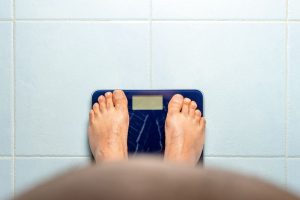
Link between prostate cancer and obesity
If you are obese or overweight, it is more likely that prostate cancer will be diagnosed at a more advanced stage…

Cancer - Prostate

Cancer - Prostate

During this month dedicated to prostate cancer awareness, we take the opportunity to encourage you to make small changes to improve your overall well-being.
Maintaining a healthy and active lifestyle is essential for your quality of life, regardless of your prostate cancer diagnosis. Below, we present five beneficial behaviors for your health. We invite you to consider which one you find most achievable to incorporate into your daily routine over the next 21 days, at a time that suits you best. Each of these behaviors is accompanied by additional information and practical advice to guide you in your journey and facilitate your choice.
Weight management is important, especially before, during, and after prostate cancer treatment. Maintaining a healthy weight can reduce the risks of chronic diseases such as diabetes, heart diseases, and certain types of cancer. Additionally, a healthy weight promotes overall well-being, energy, and mobility. In summary, it helps you feel better on a daily basis and gives you more strength to cope with health challenges, including the side effects of cancer treatments.
If you are considering starting a weight management program, it is advisable to consult with a healthcare professional, especially if you have pre-existing health issues.
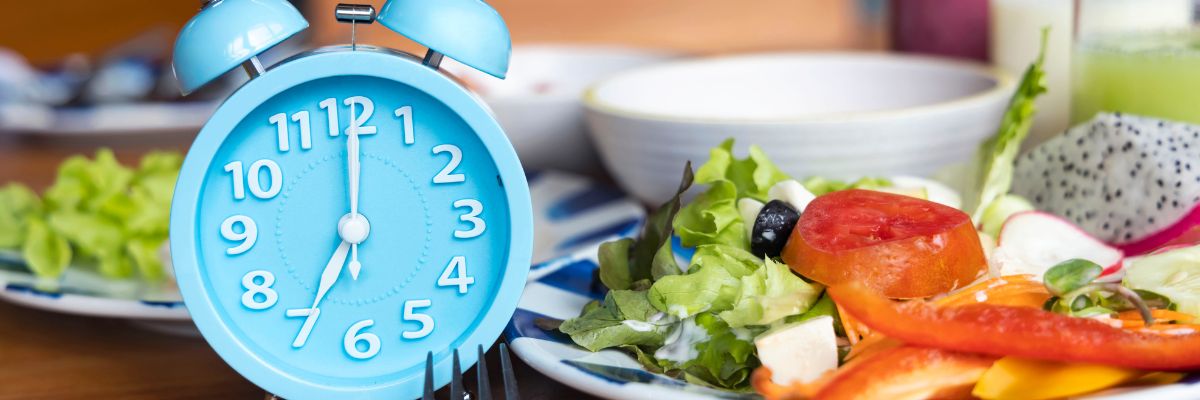
Modifiable behavior : Emotional Eating
It is essential to recognize that emotional eating can be an instinctive response to stressful situations. Understanding that food should not be used as a way to cope with our emotions is the first step in changing this behavior. Becoming aware of our emotions, expressing them, and finding more appropriate ways to manage them, such as relaxation or walking, helps maintain a healthy relationship with food and promotes lasting emotional well-being. Of course, it may sound easier said than done, but let’s go over some basic principles to guide you below.
Emotional eating can lead to impulsive eating habits and an imbalanced relationship with food. When we use food to cope with stress, anxiety, or negative emotions, it can result in overeating, less healthy food choices, and potentially weight gain.
Emotional eating occurs when food is used as a momentary comfort rather than as a source of nutrition. But how do you know if you’re “eating your emotions”? How can you tell if you’re truly hungry? Consider the following:
Physical hunger is real if:
Emotional hunger is probable if:
For example: Imagine you have a particularly busy and stressful day at the office. You have tight deadlines, stressful meetings, and a lot of pressure to perform. You start feeling anxious and overwhelmed by the situation. At that moment, you might feel the urge to eat something sweet or comforting, like cookies or chips. This urge to eat is triggered by the need to relieve the stress and anxiety you’re experiencing.
There are several signs and clues that may indicate you might be eating your emotions:
If you recognize any of these signs in your eating habits, it can be helpful to step back, reflect on your emotions and eating patterns, and possibly seek strategies to better manage your emotions without turning to food. If it becomes a persistent issue, it may be important to consult a healthcare professional or a nutrition counselor for personalized assistance and guidance.
Other benefits of taking a 5-minute break before eating:
Here are some simple tips to avoid eating impulsively:

If you are obese or overweight, it is more likely that prostate cancer will be diagnosed at a more advanced stage…
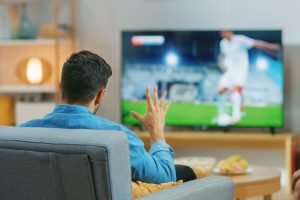
Did you say sport? My favorites are on TV… Yes! In Quebec, we love sports. Normally, we eat hockey, “wait” for the Nordiques to return, hope for the Expos, cheer
Click on the links below:

Modifiable behavior : Neglecting hydration throughout the day
Hydration plays a crucial role in weight management as it can influence appetite and satiety regulation. Drinking an adequate amount of water throughout the day can help prevent confusion between thirst and hunger, which can reduce the risk of impulsive snacking and overeating. Of course, it may sound easier said than done, but let’s go over some basic principles to guide you below.
Not drinking enough water can lead to issues like fatigue, decreased concentration, and headaches. Your body’s functioning can be disrupted, and it may also lead you to eat more than necessary. Therefore, maintaining proper hydration is essential to stay energetic, focused, and healthy.
Did you know that hydration plays an important role in weight management?
Some beverages can contribute to weight gain due to their added calorie content or their impact on appetite and weight management. Here are some examples of liquids that could have this effect:
Other benefits of proper hydration throughout the day include:
Here are some simple tips to help you stay hydrated throughout the day:

Male incontinence is a taboo subject that is the subject of several myths. For those affected, having the right information is essential.

Whether you urinate standing or sitting, embarrassed or not, before flushing, watch and pay attention to your pee that you have just poured into your toilet, bowl to be more
Click on the links below.
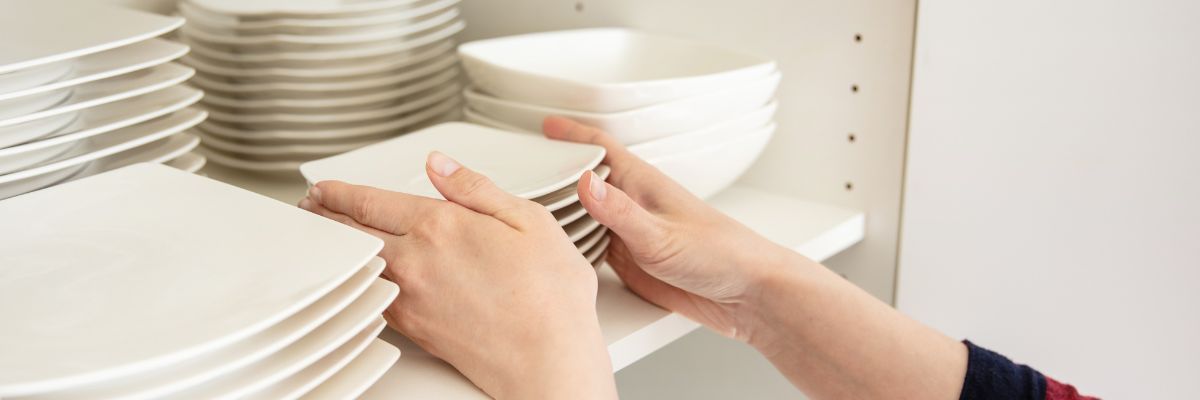
Modifiable behavior : Poor Portion Control
Poor portion control occurs when we consume excessive amounts of food compared to our actual needs. This can lead to overeating and unwanted weight gain. By paying attention to the size of our portions, we can better manage how much we eat, avoid overindulging, and maintain balance in our diet.
Poor portion control can lead to issues such as digestive problems, bloating, and gastrointestinal discomfort. Additionally, it can contribute to a lack of food control and even episodes of cravings. Ultimately, it can affect our ability to maintain a healthy weight.
The Quebec television show “L’épicerie” hosted by Johanne Despins and Denis Gagné, once investigated what we eat for lunch. They purchased lunches from ten fast-food chains to measure portion sizes and found that:
Why do we eat so much? According to Laurette Dubé, a professor at McGill University’s Department of Marketing: “As human machines, we are programmed by 10 million years of evolution to eat what is calorie-dense, fatty, and sweet. But when it’s abundant all the time, throughout the day, the machine isn’t necessarily adapted.”
For example, we eat until we clean our plate, without even realizing that sometimes there is too much food. It’s difficult to stop and leave half of it. So, to eat less, perhaps we should simply start by putting less on our plate…
Portion Size
You can consult the Canadian Food Guide for more information on portion sizes.
Other benefits of using smaller plates to manage your portions include:
Not sure where to start? Here are some tricks and tips for effectively managing portions:
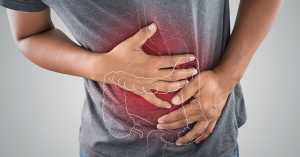
Often food-related, a starting point would be to write down what you eat and how your gut feels to find out what causes bloating, burping and gas after a meal
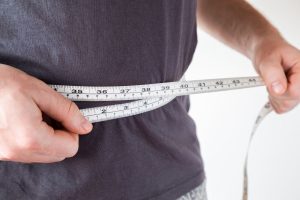
Many men with prostate cancer struggle with other health problems such as being overweight or having cardiovascular diseases or diabetes. In those who do not have these problems but are
Click the links below to access more information to help you achieve this commitment:
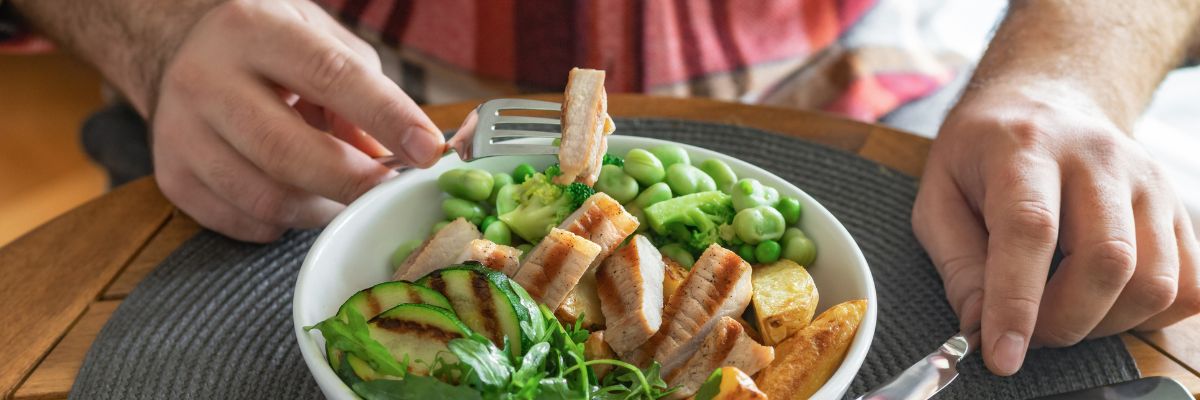
Modifiable behavior : Ignoring Hunger and Fullness Signals
It is important not to ignore hunger and fullness signals because they allow us to better understand our body’s food needs. These signals help us determine when to eat, what to eat, and how much to eat. By listening to them, we can establish a healthier relationship with food and maintain a balanced weight. Of course, it may sound easier said than done, but let’s go over some basic principles to guide you below.
By recognizing the sensation of hunger, we can provide our body with the energy it needs to function properly. Similarly, by identifying when we are full, we avoid eating beyond our needs, which can contribute to weight gain and digestive issues. Whether we are in the process of losing weight, gaining muscle mass, or simply aiming to eat healthily, it is important to pay attention to these signals.
Hunger signals indicate when it’s time to eat, and satiety signals indicate when it’s time to stop eating.
Hunger is generally the best-known signal, although its manifestations vary greatly from person to person. Obvious stomach rumbling can be observed, but thirst, headaches, decreased concentration, or irritability can also be indications that it’s time to eat.
Satiety is a little less well-known. It’s the feeling of satisfaction and being full without being overly stuffed. In other words, it’s the sensation of having eaten enough. This signal is a bit more challenging to recognize. A good clue? Compare the first bite of the meal to the last. Towards the end of the meal, the food generally tastes less good and provides less pleasure than at the beginning of the meal. This is the signal that our satiety has been reached. Taking a break during the meal can help us recognize it better.
The human body is a marvellous “machine.” When it needs something, it finds a way to get it. And when it’s too much, it also lets us know.
When we are born, we have the ability to listen well to our bodies, meaning the signals it sends us. It is by automatically and innately listening to these signals that a child manages to eat when hungry and stop when full.
As we grow up, many factors in the human environment can blur these hunger and satiety signals or push us not to listen to them. Whether it’s due to food abundance, the emphasis on thinness, or restrictive diets, most adults unfortunately are no longer attuned to the signals their bodies send them.
Keep in mind that it takes about 20 minutes for your stomach to tell your brain that you have eaten enough. If you devour your meal in 5 minutes, you will probably still feel hungry, even if your stomach is full.
Other benefits of placing your fork down between each bite include:
Not sure where to start? Here are some practical tips:
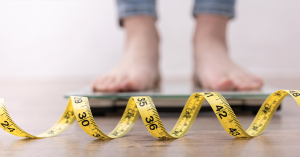
Eating well during your treatment to avoid weight loss or gain is essential to your health. Nutritional needs may be higher during prostate cancer treatment. You’ll need a good supply of protein,
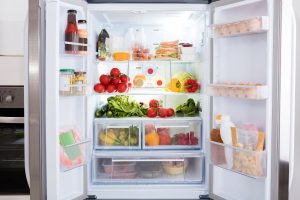
The side effects of prostate cancer treatment can make it difficult to maintain a healthy diet. Here are some tips and advice when chemo gets on your eating plate. The
Click on the links below to access more information about this commitment:
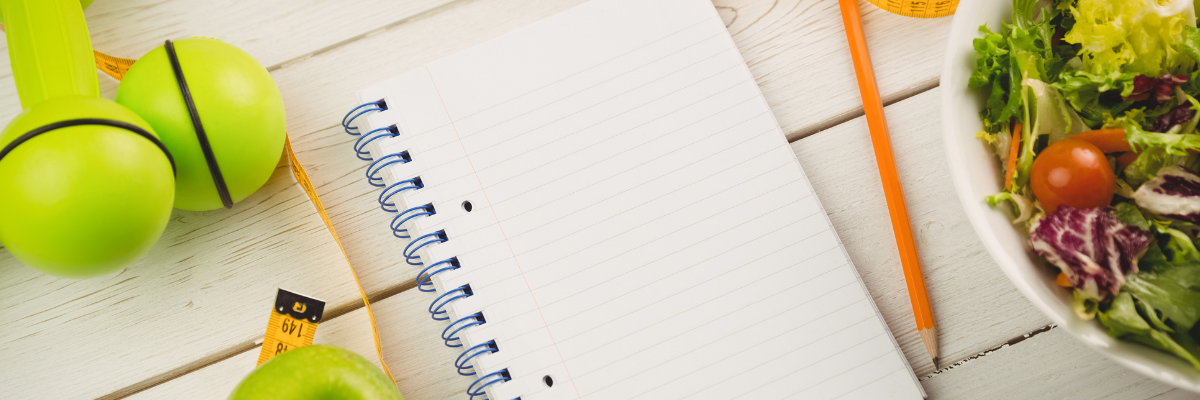
Modifiable behavior : Not tracking progress
Keeping a food journal helps raise awareness of what one truly eats, better understand eating habits that may be detrimental to health, and track weight loss progress.
A food journal can be especially helpful for those trying to lose weight, manage a chronic condition, or improve their overall health. It also helps identify dietary deficiencies and excesses, as well as potential digestive or allergy issues.
A food journal can be used to track the impact of foods on overall health and well-being in several ways.
First, by noting what you eat and drink each day, you can see if you are consuming enough essential nutrients such as vitamins, minerals, and proteins.
Additionally, the food journal can help you track the impact of foods on your weight and physical fitness. By regularly recording your weight and comparing this data to what you eat, you can track the positive or negative impact on your weight.
It can also be used to track the impact of foods on your overall well-being. By noting how you feel physically and emotionally after eating certain foods, you can identify the foods that make you feel good and those that make you feel less well.
To keep a food journal, simply record what you eat and drink, along with quantities and the times these foods were consumed. It’s also important to note any physical exercise performed and any weight changes.
Keeping a food journal also helps to:
Don’t know where to start?
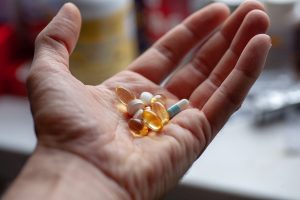
Vitamin and mineral supplements are essential nutrients that should be consumed every day. Are you consuming enough of them?

Whether you want to prevent prostate cancer or simply eat well, here are 5 tips for slimmer, healthier, and tastier meals. But to get there, it’s important to find recipes that
Click the links below to access more information to help you achieve your commitment:
Written by PROCURE. 2023 © All rights reserved.

Prostate cancer
do not experience it alone.
Our healthcare professionals are here to answer all your questions and those of your loved ones. Contact us.
Contact Us
© 2023 PROCURE – All rights reserved
Registration number: 86394 4955 RR0001
Terms of use | Privacy policy